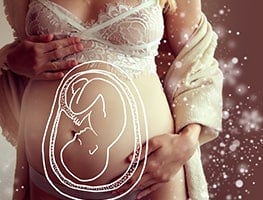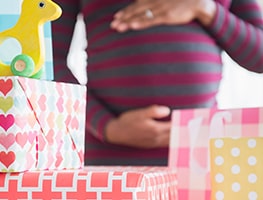As we know, caffeine affects people differently according to their body’s ability to deal with it. As a general guideline though, you should consume less than 600 mg per day – around four cups of strong drip-percolated coffee, or five or six cups of tea (less is recommended for pregnant or breastfeeding women). Some nutritionists believe that one to two cups a day is fine for the average person. However, if certain circumstances put you outside this category, abstaining isn’t going to hurt.
Pregnancy
Caffeine is quickly absorbed and reaches a peak concentration in your blood within an hour of ingestion: it also has negative impacts on your unborn child. Studies have shown that women who drink in excess of one cup of coffee a day are only half as likely to conceive as those who drink less than a cup a day. The odds are even worse for women who drink more than two and a half cups a day (they are nearly five times less likely to conceive as women who do not drink coffee at all).
Studies also suggest that caffeine reduces fertility in men by damaging the sperm. Caffeine has been reported to negatively influence the production of hormones that control fertility, for example it may reduce the rate by which an egg successfully implants in the uterus.
Unfortunately, we don’t fully understand the impact of caffeine on human development.
Some studies have shown that a high intake of coffee (7 or 8 cups per day) increases the risk of stillbirths – but a definite link between caffeine intake and low birth weight, prematurity and miscarriages has not been proven.
But it’s not all bad news.. Caffeine’s minor effect on respiration (increasing blood flow through the lungs and increasing the supply of air) appears to be useful in treating breathing problems of some prematurely born infants.
Breastfeeding
The amount of caffeine that turns up in breastmilk as compared to the actual amount that a mother consumes, varies. It is estimated that 0.06% to 1.5% of the amount ingested crosses into breastmilk. The half-life of caffeine is between 2½ to 4½ hours (approximately doubled in women on the pill and up to 15 hours during the last trimester of pregnancy). However, for newborns – who metabolise caffeine very slowly – the half-life is 80 hours.
Caffeine has an affinity with the fatty, creamy layer of breastmilk and consequently tends to be most concentrated one hour after we drink it. In some studies, it’s been found that mothers who consume lots of caffeinated drinks have lower iron levels in their breastmilk. This may explain why there are more instances of iron deficiency anaemia in countries where lots of coffee is consumed. Babies of mothers who drink large amounts of caffeine can show signs of irritability, constipation and general unsettledness. So cutting back on caffeine could be the answer to a good night’s sleep – for both you and your baby!
Because caffeine is a diuretic, drinking too much may lead to dehydration amongst breastfeeding moms. As babies need between 3-5 cups of fluid a day from their mothers, it is very important that mom stays hydrated.
But even if you are breastfeeding, you don’t need to completely deny yourself the small pleasures in life such as the occasional tea or coffee. However, keep your intake to one or two cups once in a while, ideally after feeding. The American Academy of Paediatrics suggests that breastfeeding moms consume no more than three cups of coffee a day (that is equivalent to less than 300 mg/day).
























